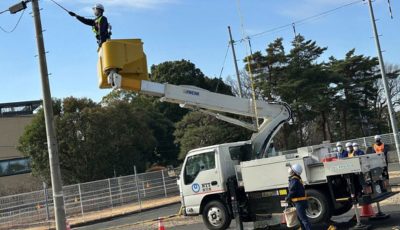OPA audit: CUC board unable to succeed
An audit of the Commonwealth Utilities Corp. states that its financial standings are better off without the “presence of an active board” and the only way for it to succeed is to gut its current structure and transform it into a completely new entity.
To that, the CUC board had no comments.
The audit, conducted by the CNMI Office of the Public Auditor, was released yesterday, citing CUC’s incapability to function as an independent public agency.
“History has clearly shown that a politically appointed board is unable or unwilling to exercise the necessary fiduciary responsibility for CUC to succeed,” the audit stated.
In order to succeed, OPA recommended that CUC’s corporate structure be revised into a completely new entity.
“For the new entity to be successful, it must have the political and financial freedom to chart an independent course in conjunction with oversight from the consumer/electorate,” the audit stated.
The audit looked at CUC documents from its creation back in 1985 up to the present.
The OPA tried to obtain comments from CUC about the draft audit in mid-March, giving CUC a chance to defend itself or correct any mistakes in the audit report within 30 days.
Despite a statement last April 17, 2017, that CUC would ask for an extension, OPA proceeded to publish the audit without comments from CUC. Whether OPA received a request for extension from CUC was not indicated in the report.
“OPA provided a draft copy of the audit report to CUC on March 17, 2017. We did not receive any comments from CUC within the stipulated 30-day response period,” wrote the audit.
According to the audit report, OPA is required to semiannually report on the audited agency’s compliance with OPA recommendations and will be in touch with CUC in June and December until the recommendation is resolved.
Based on findings by OPA, the agency recommended that CUC revise its corporate form, citing the case of neighboring islands or similar islands such as Guam and Hawaii.
OPA recommended that CUC be revised as a cooperative, municipal corporation, or a privatized entity.
Under a cooperative corporate structure, ratepayers would hold an election of board members while profit obtained would be paid back to the users in the form of dividends. This model ensures distinct roles for the board and management, an issue the current CUC corporate structure has been facing, according to the OPA audit. The audit states this structure has been adopted by Hawaii’s Kauai electrical cooperative.
The municipal corporation is a structure that is fairly similar to CUC’s current structure and allows for the direct election of the board members while ensuring greater independence when dealing with debtors. This structure also reduces external influences while encouraging apolitical decision making of management. This structure has been successful in Guam.
CUC as a privatized entity was only considered by OPA because of its legality. Since the corporation would be selling assets and transferring authority to a private company, OPA predicts that CUC rates would spike if a privatized corporate structure is to be adopted since private companies require a return of investment. According to the audit, the legislative mandated value of the assets amount to an unrealistic $250 million.
The OPA audit said the transition from one structure to another would require a period of time needed to research, educate, and debate over the best model or hybrid models to adopt for CUC.
Torres on CUC board
Gov. Ralph DLG Torres issued a statement to address the retention or termination of CUC board members yesterday, but due to other priorities, Torres was unable to meet with board members last week.
In the statement, Torres failed to arrive at a decision regarding the termination of the CUC board due to an invitation by U.S. Senate Energy and Natural Resources chair Sen. Lisa Murkowski (R-AK) to testify for House Resolution 339, or the Northern Mariana Islands Economic Expansion Act, a bill authored by Delegate Gregorio Kilili C. Sablan (Ind-MP) that seeks to increase the number of people allowed to apply for the CW1 visa.
The Torres administration statement ensured that the CUC board would be provided a resolution upon Torres’ return.
As of now, Torres is in Guam attending the 2017 Micronesian Island Forum.



























